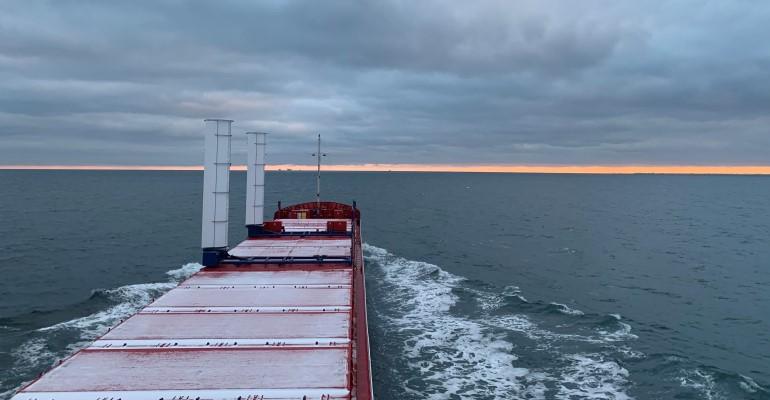Access to clean maritime fuels is a top priority for the decarbonisation of the shipping sector. The recently published Draghi report on the Future of European Competitiveness identifies shipping as one of the most difficult sectors to decarbonise, requiring around 40 billion in annual investments between 2031 and 2050. The report highlights that, while the EU is a world leader in sustainable renewable and low-carbon fuels for the decarbonisation of transport, it has limited installed capacity and planned production. The EU needs to start building a supply chain for clean fuels, or the costs of meeting its targets will be significant.
The new Clean Maritime Fuels Platform is a bottom-up industry initiative aiming to enhance communication between the shipping sector and fuel producers and to identify common challenges and possible solutions, considering the implementation of the Fit for 55 package and the transition to a net-zero economy by 2050.
Today, representatives of ECSA, FuelsEurope, eFuel Alliance, EWABA, HydrogenEurope and Methanol Institute held their first meeting and agreed on the objectives and the working principles of the new platform. Members also started to discuss the key topic of infrastructure gaps.The platform will focus on policies and tools to support the production and uptake of clean maritime fuels in Europe including areas such as maritime in EU ETS and funding opportunities.
The platform will hold regular meetings with ECSA taking care of the secretariat’s tasks.
“Today, the shipping and energy industry join forces and launch a dialogue platform that can facilitate better flow of information about the common challenges we are facing. We need all hands-on deck to make the energy transition happen. In order to meet our targets, we need clean fuels available in the market in sufficient quantities and at an affordable price. European shipowners are proud to launch with the fuel producers the Clean Maritime Fuels Platform”, said Sotiris Raptis, ECSA Secretary General.
“The launch of the Clean Maritime Fuels Platform is a significant milestone in our collective journey towards sustainable shipping in Europe. By bringing together the expertise and innovation of the maritime sector of Europe and fuel manufacturers, the Platform will explore the opportunities and challenges of the production, supply and use of renewable and low-carbon maritime fuels. This collaboration will help both our industries to be at the forefront in contributing to the Fit for 55 and Green Deal objectives while continuing to thrive in the global market place”, stated Liana Gouta, Director General of FuelsEurope.
“There are numerous challenges to a swift and reliable supply of renewable marine fuels. Through a regular exchange with other industry representatives and by making concrete proposals to optimize the European regulatory framework, we aim to make immediate progress for the maritime industry and other transport sectors with this initiative”, said Ralf Diemer, Managing Director of the eFuel Alliance.
“We are very excited to launch the Clean Maritime Fuels Platform today. Our 55+ members from across the EU are working tirelessly to produce waste-based and advanced biodiesel of the highest quality requirements and GHG savings to bring a new era of clean shipping to Europe. We believe that a closer collaboration between renewable fuel suppliers and ship owners will significantly reduce technical, operational, and financial barriers across the supply chain for the development and uptake of renewable maritime fuels”, said Angel Alvarez Alberdi, Secretary General of EWABA.
“Hydrogen Europe is pleased to be part of this joint initiative to enhance the manufacturing, supply, and uptake of clean fuels in the maritime sector. Following the adoption of new legislation and objectives within the Fit for 55 packages in the last term, the timing is right for the next European mandate to ensure a coherent and comprehensive framework for decarbonised shipping. European and national policies, implemented with the right funding instruments, must be complemented by international policies under the IMO to ensure this is achieved without deteriorating the competitiveness of European industry. Renewable and low-carbon e-fuels can play a key role in the decarbonisation of the maritime sector, but their large-scale production and uptake need to be facilitated as soon as possible”, said Daniel Fraile, Chief Policy Officer of Hydrogen Europe.
“The energy transition is a gradual journey, not an overnight change. It demands a robust regulatory framework and collaboration among all stakeholders involved to drive effective decarbonization. As we work alongside our 100 members through the complexities of this transition, the Clean Fuels Maritime Platform will play a crucial role in accelerating our shift to cleaner fuels and innovative technologies. By combining our collective expertise and efforts, we are not only tackling the pressing need for emission reductions but also laying the groundwork for a more resilient and sustainable maritime industry”, said Greg Dolan, CEO of Methanol Institute.
Source: ECSA (European Community Shipowners’ Associations)





